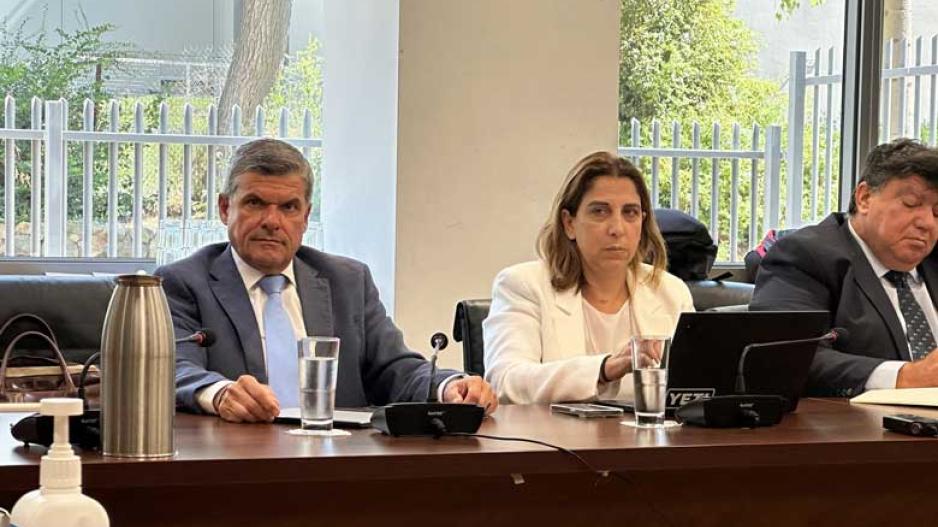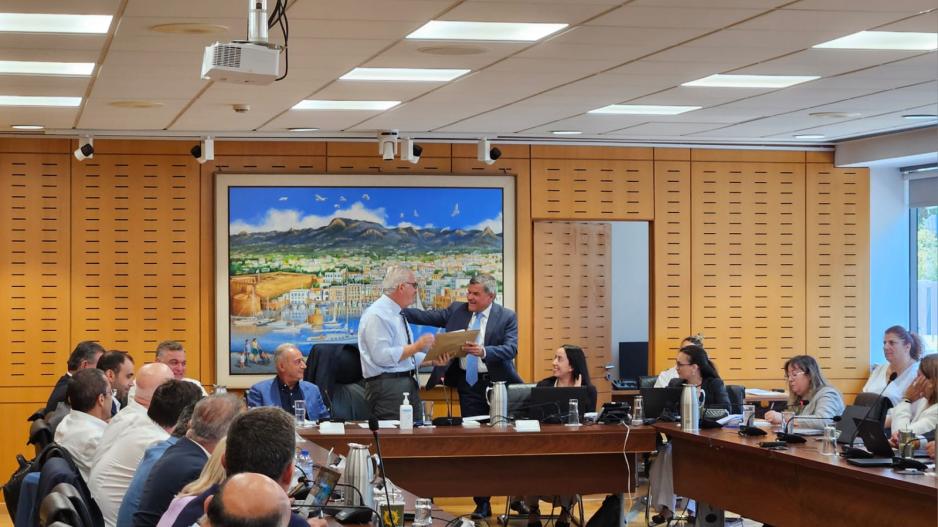Great Sea Interconnector: Minister Submits Cost-Benefit Study Amid Geopolitical Concerns
Minister of Commerce Defends Regulatory Framework as Implementation Body Seeks Clarity on Geopolitical Risk
The Minister of Energy and Commerce, Giorgos Papanastasiou, has submitted the cost-benefit study for the Great Sea Interconnector to the Parliamentary Committee on Commerce, which is currently in session.
This submission followed comments from the Committee Chairman, Kyriakos Hadjiyiannis, who had pointed out that the study had not yet been provided to Parliament, despite circulating elsewhere.
In response, the Minister of Energy stated that today they received approval from the Independent Power Transmission Operator (ADMIE) to deliver the study.

Meanwhile, the Minister of Energy, Commerce, and Industry, Giorgos Papanastasiou, clarified today that the issue of geopolitical risk associated with the implementation of the Cyprus-Greece electricity interconnection is the responsibility of the implementing body and that he supports the existing regulatory framework as established by the Cyprus Energy Regulatory Authority (CERA) on this matter.
It should be noted that the new implementing body has requested that CERA amend the regulatory framework to cover geopolitical risk and the expenses it has incurred in the event that the project is not completed due to external factors. However, the current regulatory framework stipulates that this issue "may" be considered by the regulatory authority.
The President of CERA, Andreas Poulikkas, stated that the issue of geopolitical risk is not a regulatory matter.
"There must be recognition by the state because it is a non-regulatory issue," he noted. He added, "Once the state acknowledges it as a geopolitical risk, CERA can take it into account when making a decision." He emphasized that the word "may" is crucial as it does not predetermine CERA's decision.






